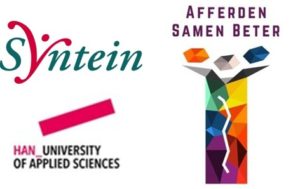Background
Dutch health-care professionals are currently working in an illness and production-driven fee-for-service healthcare system, basically reactive instead of proactive. A consult usually starts with the GP asking about physical problems and the GP subsequently searching for a medical solution or referring the patient for secondary care in less than ten minutes. However, with a consultation that is longer and also takes a broader perspective on the patient and health-related problems (i.e., six dimensions of Positive Health) patient benefit might be found to be greater and referral to more expensive healthcare services might be found to be unwanted and/or unnecessary.
Aim and relevance
The so-called Afferden initiative aims to maintain and improve patient Positive Health by implementing and supporting — financially and otherwise — a full cycle of care. In the General Practice of Afferden, a unique experiment was conducted in which consultation and the financing system was altered. The GPs also invested in community building. In doing this, solutions for health-related problems were sought-after in lower cost, easier access, and community-based facilities as opposed to secondary care. Money was saved for investment in additional interventions to promote and maintain the health and resilience of patients with a true cycle of care thus being realized.
Size, scope, patient description and involvement
All 2800 patients in the Afferden General Practice were involved. The health and healthcare experiences of the patients stood central, but the job satisfaction of the healthcare professionals and the cost of the healthcare provided were also key. Community-building initiatives aimed at making the community stronger, healthier, and more resilient were also undertaken (identification of promising ideas, required facilities, and desired interventions).
Methods
Financed by health insurance companies, the practice was able to expand its team of GPs and introduce a capitation (i.e., bundle) system of payment starting in 2016. The care professionals in the practice were trained to apply the concept of Positive Health, working in a solution oriented manner. In addition, the GPs helped to promote and organize various citizen initiatives (e.g., a meeting place for the elderly, walking groups).
Results
The satisfaction of both patients and health care professionals increased. Referrals to secondary care dropped by 25%. Cost of care for the practice population was nearly €500.000 less than expected. In 2017 and 2019, the Afferden initiative was upscaled to three other general practices in the region. Similar results were documented. Community initiatives were organized and useful ideas gathered for how the community can invest the shared medical savings in prevention programs and the promotion of healthy lifestyle alternatives.
Formation of IPUs/collaborations/partnerships
The Afferden General Practice and the community have collaborated on, for example, the design of a new health center. Close collaboration with the local government’s ‘social team’ and cooperation in community-building activities also became an integral part of the GPs job description. In addition, a local Network for Positive Health was founded, currently including primary, secondary, and tertiary care organizations but also civilian and welfare organizations. The aim is to work from a Positive Health perspective.

